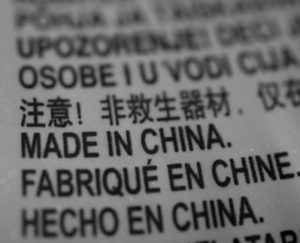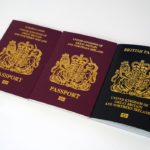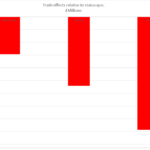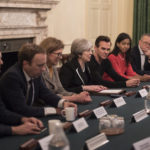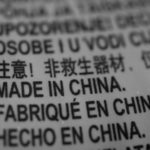Countries enter into free trade agreements with each other in order to provide enhanced, preferential market access opportunities to one another. But in order to put these into practice, it is necessary to have criteria that tell us when products come from the partner to whom such preferential access is given, and are not re-exports from another source. This is the purpose of rules of origin.
The main challenge facing rules of origin is that supply chains are international. Consider I-phones, for example. Apple is an American company and supplies the intellectual property for the product and some production activities, but components are sourced from a variety of sources, notably China and Korea. Rules of origin therefore typically set thresholds in terms of the minimum value added that must come from the country that is party to the agreement, in order to qualify for preferential treatment. A frequently used threshold is 40% of value added from domestic sources.
But what happens when countries involved in cross-border supply chains are party to separate free trade agreements? For example, in a post-Brexit world, it may be that the UK has a separate free trade agreement with Korea or Canada, just as the EU now has one with both, and that the UK also has a free trade agreement with the EU.
An arcane vocabulary has developed to address such situations. “Diagonal cumulation” refers to the possibility, say, that Korean inputs used in the UK for the manufacture of goods can then “count” towards these goods receiving duty free treatment in the EU. “Full cumulation” is a more liberal form of arrangement. It enables a country’s products to benefit from preferential treatment, regardless of where the input is sourced from, provided that the specified minimum transformation or value added criterion is satisfied. The EU and EEA currently apply full cumulation to its members.
For the UK, as it seeks to maintain “friction free” trade with the EU, and pursue free trade arrangements with the rest of the world, rules of origin are likely to prove a challenging aspects of its negotiations with the EU and other partners. The articles below provide some insights into the issues and how they might be tackled.
